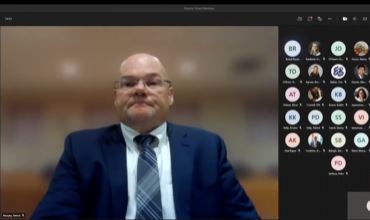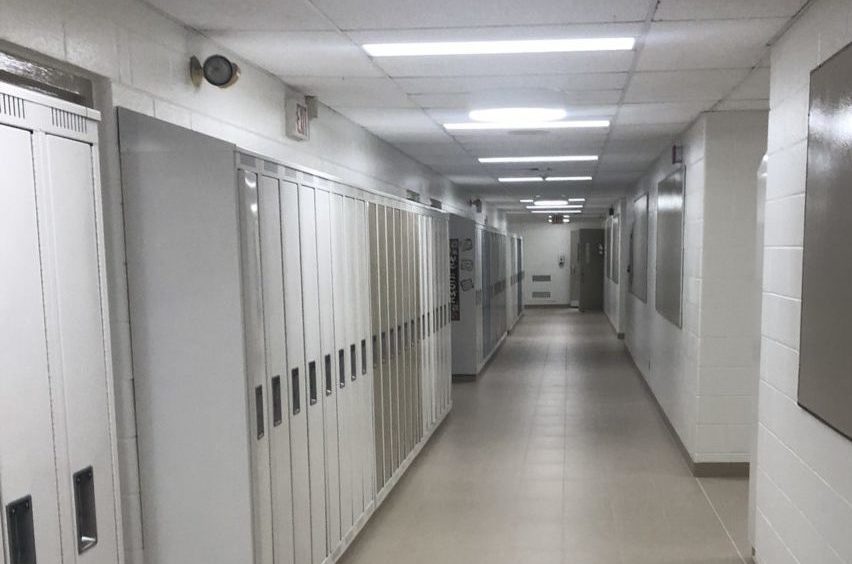After a return to classrooms, the Halton Catholic District School Board convened its first board meeting of the new school year to address several issues of note, particularly how COVID-19’s continuing impact will shape the fall semester for students and instructors alike.
The three-hour assembly, which took place after the first day of instruction on September 7, opened with an appeal for support from outgoing student trustee Kirsten Kelly on motions to enhance equity and inclusion for students.
Beginning with a motion advocating menstrual equity measures, Kelly reiterated the district’s need to address and disrupt “period poverty,” citing figures from the previous student trustee indicating that “one in three Canadian women under 25 struggles to or cannot afford menstrual products” and that 70% of the same demographic group had missed work, school or social activities due to their period.
The HCDSB trustee board has already passed a motion to disrupt period poverty, and adopting trustee Kelly’s advocacy would see the HCDSB joining other district boards in British Columbia and Nova Scotia in providing menstrual products to all students, free of charge.
Next was a motion of support to broaden the availability and public awareness of Indigenous Studies courses across the board’s jurisdiction, followed by an appeal to institute the Indigenous, Equity, and Human Rights Roadmap, which was introduced by the Ottawa-Carleton District School Board last October and aims to address systemic racism in Ontario’s schools through education and advocacy training.
Addressing these issues, which remain at the forefront of national and global debate as the Catholic church continues to struggle with its role in anti-Indigenous racism, particularly in light of the ongoing recovery of children’s remains on residential school grounds, will be vital in repairing and reinforcing community trust.
Following Kelly’s presentation, Director of Education and Secretary of the Board Patrick Daly opened by addressing the return to classrooms, going over the specifics of the continued safety measures carrying over from the last term, as well as new protocols instated this fall.
First and foremost was the return to full-time in-class instruction for secondary students, five hours a day of in-person learning on campuses. While cohorts will still be in effect to reduce unnecessary contact between students and staff, this will be the first time since 2019 that students have spent their entire day in a shared space.
The board will permit the use of shared spaces in elementary and secondary institutions, including gymnasiums, cafeterias, lockers, and cubbies, though cafeteria food services will not be operational during this time. That said, students can look forward to the return of third-party food programs and events including pizza days, which are authorized as long as adequate safety measures for food preparation and handling are in place.
This term also sees the return of the standardized EQAO tests for grades 3, 6, and 9, which were absent last year due to the inherent difficulty of conducting the testing during lockdowns as students engaged in at-home online learning.

On the subject of enhanced safety measures, elementary and secondary schools will be following suit in the growing trend of requiring proof of vaccination from all eligible staff, volunteers, and outside professionals before entering any campus. In addition, a daily self-screening assessment is to be completed by all students and visitors before entering facilities.
For unvaccinated individuals or those with medical exemptions, twice weekly rapid-antigen tests will be required before entry into any facility, and all schools are expected to enforce the board policy on minimizing contact between students and visitors alike.
To meet provincial recommendations for proper ventilation, all schools have been inspected, and air-conditioning and ventilation systems have either been adjusted or recommissioned. Kindergarten classes have received special attention, with standalone high-efficiency particulate air (HEPA) filters installed in classrooms to improve airflow.
Changes have been made not only to facilities, but also to the new year’s curriculum. Grade 9 students can look forward to a new single-stream mathematics class, replacing the academic and applied streams of years past, though Pre-Advanced Placement and International Baccalaureate students will be grouped into separate classes based on their program. Schools will also still be offering locally developed courses for those students who benefit from its availability.
Additionally, due to the extenuating circumstances brought on by COVID-19, the literacy graduation requirement has been axed for this year. The required community involvement hours have also been reduced to 20 hours, down from 40 hours last year. Both requirements are slated to be restored starting in 2022, but as with all the new policies and procedures, these may change based on feedback and the continually shifting impact of COVID-19.
The next board meeting is scheduled to take place September 21 at 7:30 p.m. via Zoom, and will be open for public viewing.




